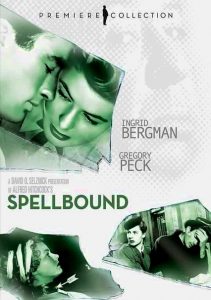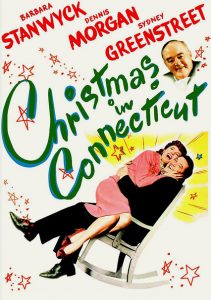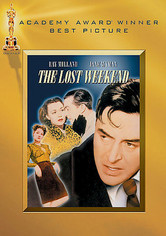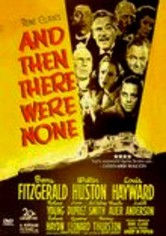Spellbound-1945
Director Alfred Hitchcock
Starring Ingrid Bergman, Gregory Peck
Top 250 Films #206
Scott’s Review #1,015
Reviewed April 24, 2020
Grade: A-
One of Alfred Hitchcock’s early American films, after his voyage from his home base in London to the United States soil, proved profitable and critically acclaimed.
Spellbound (1945) followed Rebecca’s box office and awards success (1940).
Probably the most spoofed of all the Hitchcock works in the 1977 Mel Brooks parody High Anxiety, Spellbound provides a psychological storyboard that uses enough vehicles like amnesia, hypnosis, and danger to impress any daytime soap opera writer.
Not in the director’s top arsenal or remembered well, but a stellar effort.
Youthful Doctor Anthony Edwardes (Gregory Peck) arrives one day at the sprawling Green Manors Mental Asylum as the new director.
After falling for each other immediately, the beautiful Doctor Constance Petersen (Ingrid Bergman) discovers that Edwardes is not who he claims he is. Instead, he is a paranoid amnesiac impostor, more reminiscent of a patient. This gives new meaning to the phrase “the inmates are running the asylum.”
Constance becomes obsessed with answering the following questions: What happened to the real Dr. Edwardes? If Edwardes has been kidnapped or murdered, who is responsible? Who is the gorgeous man she has just fallen head over heels for?
The intelligent psychoanalyst must practice what she preaches by becoming a sleuth and figuring out what is happening. The action occurs in bustling New York City and snowy Rochester, New York.
I love the progressive nature of the story.
To have a leading female character with a lofty professional status is admirable, given the year 1945, when female roles were beginning to evolve.
While most of the roles that Hollywood heavyweight Bette Davis portrayed in the 1930s and 1940s were vital and substantial, this was the exception and not the norm.
Bergman, quite beautiful, does not need to play sex kitten to make her character sexy. She does well with that by wearing glasses and a lab coat, using her character’s intelligence to her advantage.
In 1945, Alfred Hitchcock was still considered a “new” director by most and was only beginning to make his mark on audiences unfamiliar with his work. His cunning and masterful use of lighting and shadows to produce suspense is evident in Spellbound.
The faces of Constance and Anthony glow with a combination of warmth and suspicion, and both are wonderful at eliciting emotion through subdued facial expressions. While Peck is slightly wooden, it does add a dimension to his uncertain character.
With Hitchcock, the atmosphere is everything. The treats are magnificent, like shots of the old Penn Station and Grand Central Station, monumental parts of everyday New York City life. They provide a glimpse of bustling commuter life in the 1940s before most of us were born.
Undoubtedly, many extras and non-actors were used to enrich the scenes and offer what regular people looked like in those days.
As Constance and Anthony team up to determine what secrets lie beneath his subconscious, they board a train for the seclusion of upstate New York, where more secrets are revealed. A heavy dose of psychoanalysis and hypnotism allay the film’s best scene.
Anthony sinks into a dreamlike world where he sees strange objects fraught with symbolism: a man with no face, scissors, playing cards, eyes, and curtains. What do they all mean? Fans will have fun piecing together the clues to solve the mystery.
The works of Salvador Dali, a famous surrealist artist known for bizarre and striking images, are displayed during the dream sequence. Though limited, they envelop the scene with fright and mystique and are a perfect addition to the odd sequence.
Shot in black and white, the final scene adds a blood-red image as a character turns a revolver on themselves and commits suicide. When Anthony drinks a glass of milk, the camera is inside the bottom of the glass, creating a hallucinogenic effect.
While Peck does his best with a peculiar character, Anthony is not as interesting as Constance, Doctor Alex Brulov (Michael Chekhov), or Doctor Murchison (Leo G. Carroll). I would have loved more scenes or a backstory for Brulov, as it would have allowed me to get to know him better.
Anthony has some light annoyances, such as when he inexplicably passes out whenever events become too much for him.
Spellbound (1945) is the perfect accompaniment for a snowy winter night, with its warm and cozy look, soothing atmosphere, and musical score.
Perfect to watch in tandem with High Anxiety (1977) for a double punch of suspense and appreciation for the film, with the humor and satire it furnishes. While not the best of Hitchcock films, it stands proudly on its merits.
Oscar Nominations: 1 win-Best Motion Picture, Best Director-Alfred Hitchcock, Best Supporting Actor-Michael Chekhov, Best Scoring of a Dramatic or Comedy Picture (won), Best Cinematography, Black-and-White, Best Special Effects



